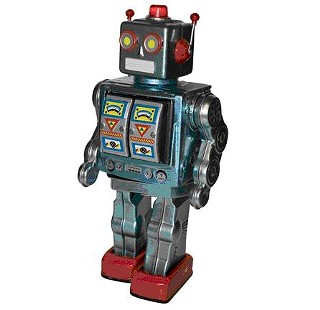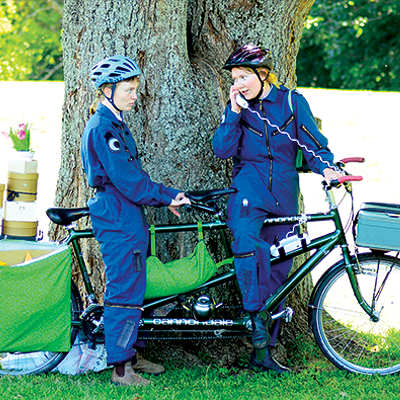There's something in our subconscious that ties us to our cars. Especially in men. Maybe it starts with our fathers and the cars we remember when we were children, the trips we took, stuck in the back seat as the world went by. It could be the lasting imprint of that adult thrill of learning how to drive at age 16, the mechanical power, both subtle and vulgar, in tune with teenage hormones.
As Toronto journalist Tim Falconer notes in his book, Drive: A Road Trip Through Our Complicated Affair With The Automobile, the car has an enormous metaphorical power in our culture.
"Beyond its pivotal role in our day-to-day lives," he writes, "the automobile has worked its way into our psyches...it's not just that the automobile is a handy device for storytelling. Through music, movies, television and literature---and advertising---vehicles have become metaphors for freedom and symbols of status and success." To that, one could add, it symbolizes sex, power and also nostalgia for the better days that many see as being behind us.
Today's car inspires as much disdain as it does all those other things, its ubiquity making it an easy symbol of our environmental crimes, as well as the economic frustration connected to the spiking cost of gasoline. Instead of freedom, the car can now be seen as an albatross around our necks, tying us down to an antiquated way of thinking, the dirty, polluted, public-transit-unfriendly, street-widened world we're inheriting.
Mike Chambers probably wouldn't agree with that sentiment. He's the organizer of the Quinpool cruise, the annual July celebration of chrome and horsepower that takes a flotilla of land sharks from Quinpool Road down to Point Pleasant Park and back again on a warm Friday evening, parking them along Quinpool on Saturday for people to gawk at: antiques, hot rods, custom sports cars and modern muscle cars, spit-polished and shiny. Chambers, who owns Nautilus Aquatics and Hobbies on Quinpool, started the cruise for antique cars in 2001 to help promote his business---which includes model-car kits as well as scuba equipment. He also owns two classic Chevys, a '55 and a '57.
"We used to do just an antique car show on Quinpool Road when we started it," he says, "and then we got thinking, why are we alienating everybody? There are guys who come with brand-new Corvettes, there's the BMW club, a British touring group, there was a guy last year who had a 2008 Mustang. Why would you divorce yourself from those guys? It's all part of the fun and it makes your show bigger." He adds, "Not everybody likes Chevys. I don't know why, but they don't."
As Chambers suggests, a passion for classic cars takes different forms. He considers himself a "hot rodder," someone who takes an antique automobile and customizes it with modern equipment: a big new engine, power-disc brakes, radial tires. The guys who belong to the Halifax Antique Car Club only use original parts for their classic cars, according to club president Gerrard Lawlor, who has owned a '52 Chevy since 1971.
"I rebuilt it from the ground up," he says. "I did everything on it, transmission, the whole power train, rear end, the whole works. I don't mess around different parts or steering. Whatever the car came with in 1952, that's what it's got now."
There's a separation between those who have a passion for cars, old and new, and people who consider cars simply a tool to make their lives more convenient. Reached on the phone while promoting his book in Calgary, Tim Falconer explains the differences in how we relate to our cars.
"In Canada, 60 percent of people consider their car an appliance," he says. "It's something to get them from A to B. Forty percent see it as a reflection or an extension of their style and image. In the States it's reversed: 60 percent style and image, 40 percent appliance."
But the problem isn't with those who consider their car a part of their personal identity, or fetishize it, it's the appliance users. It's the 60 percent of us who aren't passionate about our cars in any special way that are causing most of the damage.
"The problem is we drive too much," says Falconer. "We've created cities and communities arranged around the car. A lot of the appliance people are the people who are most addicted: the guy who commutes an hour each way every day. And he's driving a minivan or some beat up clunker.
"I want to make it clear that I'm not attacking car lovers in my book, I'm attacking the mindless driving that we all do. So, all these car club people, they'd all be in the non-appliance. They are car lovers, what their favourite car says about them, what it projects, all that stuff. Very few people use them as daily drivers."
Chambers does have a newer car he drives in his daily life, when he needs to. His hot rods stay in the garage most of the year, only coming out on occasion for people to admire, to be a conversation piece with others who appreciate automotive art, or want to take a trip back in time.
And, when asked if he thinks his contemporary vehicle will be of interest to anyone in the future---to take on a cruise a few times a year around Nova Scotia in 2040 or 2050---he's doubtful.
"I was wondering if somebody will cultivate my 2005 Malibu 30 years from now," he says. "Cars are punched out so differently than they were. It was the chrome era . There's no chrome on your bumpers these days, it's all plastic. Cars are more disposable now."















